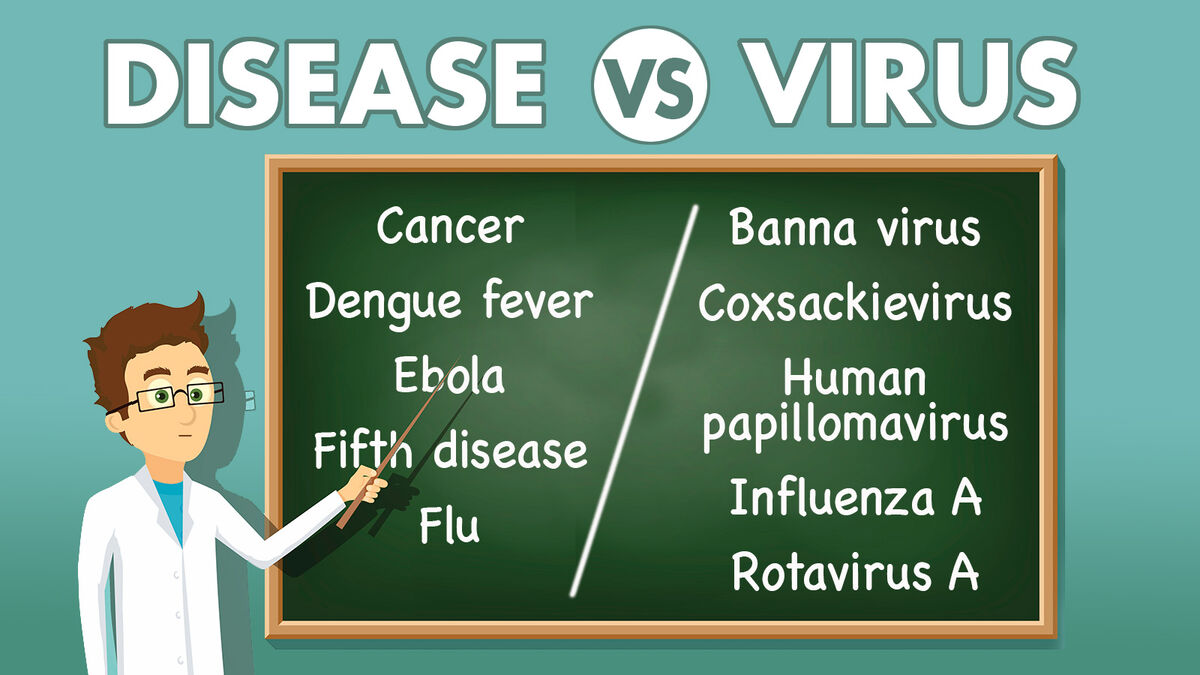
There are so many words for different things that can make you sick, it’s hard to keep track of them all. Learn the differences between a disease and a virus so you better understand medical news and your own health.
Disease Definition
The medical definition of a disease is:
"Any abnormal condition of a part or system of an organism resulting from various causes that is characterized by an identifiable set of signs and/or symptoms."
Diseases are caused by bacteria, viruses, fungi, or parasites. These microscopic organisms are the parts and the disease is the whole.
Disease Examples
Some common diseases you’ve probably heard of include:
- Cancer
- Dengue fever
- Ebola
- Fifth disease
- Flu
- Genital warts
- Hepatitis A
- Polio
- Rabies
- Rubella
- SARS
- Shingles
- Smallpox
- Zika
Virus Definition
The medical definition of a virus is:
"Any submicroscopic agent that infects living organisms, is made of a single or double strand of RNA or DNA surrounded by a protein coat, and is unable to replicate without a host cell."
When a virus finds a host, multiplies, and spreads, it can become a disease.
Virus Examples
People don’t usually use virus names in everyday conversations, but some of these examples might sound familiar.
- Banna virus
- Coxsackievirus
- Human papillomavirus
- Influenza A
- Rotavirus A
Examples of Viruses and the Diseases They Cause
Viruses and the diseases they cause don’t typically have the same name. The name of a virus is based on its genetic makeup and helps with the development of tests, vaccines, and medications. The name of a disease takes into account what will be easy for people to say and help people talk about prevention and treatment.
Check out a few virus vs. disease name examples to see the difference between these related terms. Which is more familiar to you?
Virus: Severe acute respiratory syndrome coronavirus 2 (SARS-CoV-2)
Disease: Coronavirus disease (COVID-19)Virus: Human immunodeficiency virus (HIV)
Disease: Acquired Immune Deficiency Syndrome (AIDS)Virus: Rubeola
Disease: MeaslesVirus: Human T-lymphotropic virus
Disease: LeukemiaVirus: Echovirus
Disease: Common cold
Virus Is Smaller Than Disease
A simple way to remember the biggest difference between “virus” and “disease” is the number of letters in each word. “Virus” has five letters while “disease” has seven. Just like the word “virus” is smaller than the word “disease,” a virus is a small part that can create a larger disease. Take your exploration of viruses and diseases a step further and learn the differences between an infectious disease and a zoonotic disease.